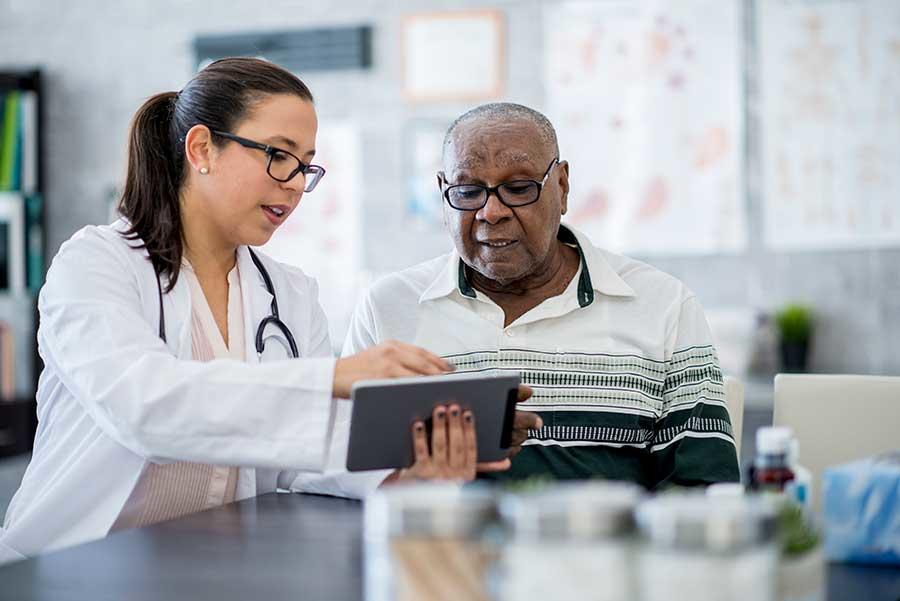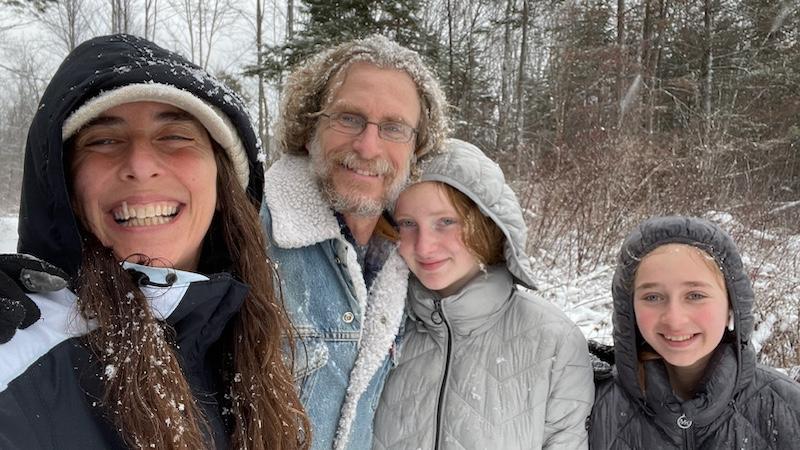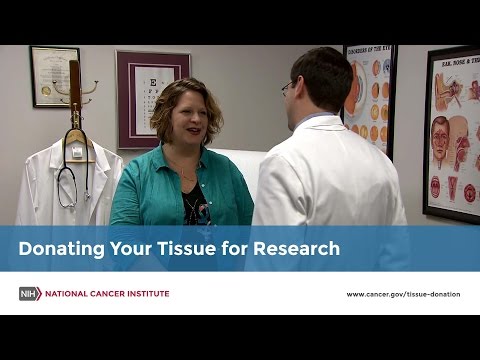Donating your medical data and samples is just one of many ways to participate in cancer research.
Medical data can include health records or any documentation you’ve provided to your doctors about your health that you are open to sharing. Samples, also called biospecimens, might include tumor tissue, blood, and urine.
Sample and data donations are a critical resource for cancer research because they provide clues to what is going on in the body.
Studying samples and data can improve how we prevent, diagnose, treat, and care for those with cancer. With samples and data from as many diverse groups of people as possible, researchers can help ensure that everyone benefits from medical advances.
Impact of medical data and samples
Data and sample donations are important to research progress.
For example, health information data provided by thousands of study participants in farming communities in Iowa and South Carolina over several decades has led to a better understanding of farming-related exposures that might put someone at risk for cancer.
In another case, donated tissue, oral, and fecal samples are helping other researchers study the potential connections between our microbiomes and cancer.
And privacy-protected data from molecular testing of tumor samples from young people with cancer are being shared with the research community to aid in discovering new and better childhood cancer treatments.
How to donate data or samples
Here are some ways you can donate data and samples:
- Take part in a clinical trial or observational study. Your health experiences during your participation and results from analyzing your samples are types of data you can donate.
- Talk with your medical team about donation prior to undergoing a scheduled biopsy, surgery, or other medical procedure that involve samples or data.
- Give consent to your hospital or medical institution to use your records for further research.
There are also several NCI-supported studies collecting data or sample donations:
- My Pediatric and Adult Rare Tumor network
- The Cancer Moonshot Biobank
- Childhood Cancer Data Initiative Molecular Characterization Initiative
If you think you might be eligible, contact these study teams or ask your doctor to contact them.
Donating data or samples is a choice
It is always your choice to donate your medical data or samples, and you can change your mind even after you’ve donated.
You can always ask your study team or doctor to remove or destroy your donated data and remaining samples. Your study team will discuss options with you, as well as any next steps.
If you decide to donate, remember that rules and ethical guidelines are in place to protect you. These include:
- Institutional Review Boards, who approve plans for research studies and ensure that participants’ rights and safety are protected.
- Informed consent, which is a process that helps you understand what the study entails before you agree to take part.
- The HIPAA privacy rule, which protects your personal health information.
Your informed consent form should outline what will be done to protect your privacy and secure your data.
Read more about sample donation


